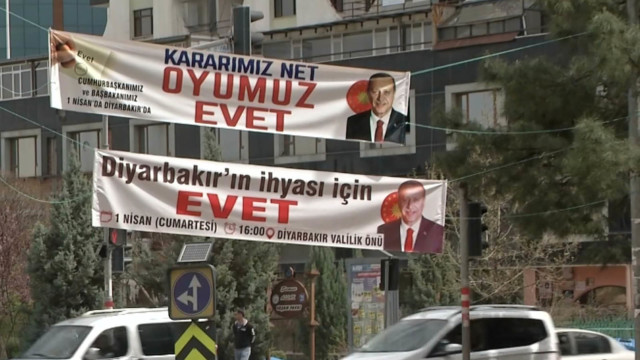On April 16 the Turkish people, including the country’s 13 million Kurds, will vote on whether to change the country’s political system to grant President Erdogan more executive powers.
CGTN’s Natalie Carney reports from the Kurdish region of Turkey.

Diyarbakir, in Southeast Turkey, is the de facto Kurdish capital of the country.
Of its 1.5 million inhabitants, roughly three quarters are Kurds and many feel their cultural identity has been suppressed by the Turkish state for years.
Much of that stems from the government’s 30 years of civil war with the Kurdish separate group, the PKK.
Many Kurds fear that a President with more powers will only lead to even more repression.
In the 2015 parliamentary elections, the pro-Kurdish People’s Democratic Party (HDP) won 80 percent of the local votes in Diyarbakir, yet this is a referendum that could shape the further of the political system in Turkey, therefore there is no guarantee residents will side with the party’s “NO” campaign.
Political loyalties span the ideological spectrum amongst the Kurds, which means that there are some strong Erdogan supporters who feel that he has managed to ease long standing cultural restrictions that had been set upon them. For example, since Erdogan has come into power, Kurdish radio and television channels have begun broadcasting and the Kurdish language can be heard and spoken widely on the streets.
The religious Kurdish political party Huda Par is backing the “YES” campaign.
They believe the current political system is ineffective and that a one-man system is what’s needed to push through parliament the necessary measures to end the violence.
 CGTN America
CGTN America
